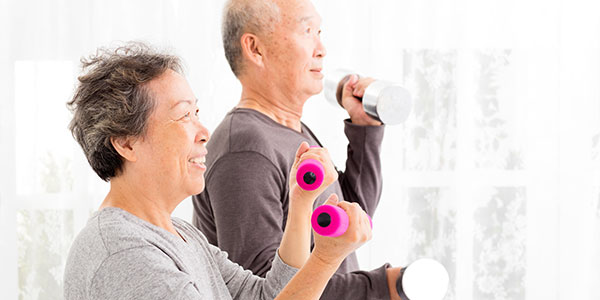One in five adults in the United States struggles with some form of arthritis, according to the Centers for Disease Control and Prevention, and 62% of those are over age 65. In fact, if you live to age 85, you have almost a 50% chance of getting arthritis.
Arthritis has as many as 100 different types, including rheumatoid arthritis, crystal arthritis and those connected with autoimmune diseases. Osteoarthritis is the kind that affects most seniors and is frequently linked to old joint injuries from excessive weight or accidents. People often blame sports injuries for their arthritis. While that’s often true, the right exercises can be key to managing arthritis pain.
Felicia S. Yang, M.D., a rheumatologist with Sutter Medical Group in Berkeley and Castro Valley, says a combination approach to chronic arthritis management often succeeds with most of her patients.
“The best approach to treating arthritis is determining the underlying cause and selecting the right medications or procedures that target that type of arthritis,” she explains. “However, regardless of the underlying cause of arthritis, all patients with arthritis will benefit from physical therapy, heat and ice application and topical relief measures to ease pain and discomfort.”
To start your arthritis self-care plan, Dr. Yang recommends these tips.










